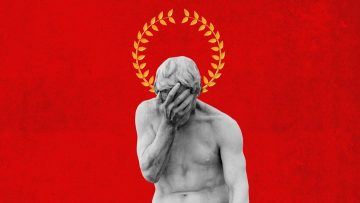Daniel Markovits in The Atlantic:
 Two decades ago, when I started writing about economic inequality, meritocracy seemed more likely a cure than a cause. Meritocracy’s early advocates championed social mobility. In the 1960s, for instance, Yale President Kingman Brewster brought meritocratic admissions to the universitywith the express aim of breaking a hereditary elite. Alumni had long believed that their sons had a birthright to follow them to Yale; now prospective students would gain admission based on achievement rather than breeding. Meritocracy—for a time—replaced complacent insiders with talented and hardworking outsiders.Today’s meritocrats still claim to get ahead through talent and effort, using means open to anyone. In practice, however, meritocracy now excludes everyone outside of a narrow elite. Harvard, Princeton, Stanford, and Yale collectively enroll more students from households in the top 1 percent of the income distribution than from households in the bottom 60 percent. Legacy preferences, nepotism, and outright fraud continue to give rich applicants corrupt advantages. But the dominant causes of this skew toward wealth can be traced to meritocracy. On average, children whose parents make more than $200,000 a year score about 250 points higher on the SAT than children whose parents make $40,000 to $60,000. Only about one in 200 children from the poorest third of households achieves SAT scores at Yale’s median. Meanwhile, the top banks and law firms, along with other high-paying employers, recruit almost exclusively from a few elite colleges.
Two decades ago, when I started writing about economic inequality, meritocracy seemed more likely a cure than a cause. Meritocracy’s early advocates championed social mobility. In the 1960s, for instance, Yale President Kingman Brewster brought meritocratic admissions to the universitywith the express aim of breaking a hereditary elite. Alumni had long believed that their sons had a birthright to follow them to Yale; now prospective students would gain admission based on achievement rather than breeding. Meritocracy—for a time—replaced complacent insiders with talented and hardworking outsiders.Today’s meritocrats still claim to get ahead through talent and effort, using means open to anyone. In practice, however, meritocracy now excludes everyone outside of a narrow elite. Harvard, Princeton, Stanford, and Yale collectively enroll more students from households in the top 1 percent of the income distribution than from households in the bottom 60 percent. Legacy preferences, nepotism, and outright fraud continue to give rich applicants corrupt advantages. But the dominant causes of this skew toward wealth can be traced to meritocracy. On average, children whose parents make more than $200,000 a year score about 250 points higher on the SAT than children whose parents make $40,000 to $60,000. Only about one in 200 children from the poorest third of households achieves SAT scores at Yale’s median. Meanwhile, the top banks and law firms, along with other high-paying employers, recruit almost exclusively from a few elite colleges.
Hardworking outsiders no longer enjoy genuine opportunity. According to one study, only one out of every 100 children born into the poorest fifth of households, and fewer than one out of every 50 children born into the middle fifth, will join the top 5 percent. Absolute economic mobility is also declining—the odds that a middle-class child will outearn his parents have fallen by more than half since mid-century—and the drop is greater among the middle class than among the poor. Meritocracy frames this exclusion as a failure to measure up, adding a moral insult to economic injury.
More here.
